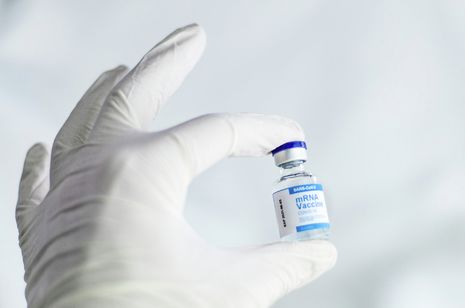Varsity Explains: Making Sense of Vaccine Efficacy and Safety
Is the Pfizer vaccine really the best, and are Covid vaccines actually safe? Yan-Yi Lee explains why comparing vaccines can be difficult, and clarifies recent concerns about vaccines

As the number of people receiving the Covid vaccination increases, the world has its eyes fixed on the range of vaccines available and what each actually does. News of unfortunate deaths after vaccination and governments temporarily suspending designated brands makes us wonder how safe it is to get a jab and how to choose between brands. Responding to the ongoing anxiety and confusion, this Varsity Explains article sheds light on two fundamental concepts: vaccine efficacy and safety. A clear understanding of these is imperative for interpreting vaccine-related news and making more informed choices.
Can we really compare vaccines?
Media outlets have published a chart whose numbers are familiar to many. Pfizer/BioNTech and Moderna stand at 95% and 94%. Sputnik and Novavax are shown at 92% and 89% respectively, followed by Oxford-AstraZeneca and Johnson & Johnson at a much lower number. Those who aren’t cognizant of what these numbers mean and how they are derived may arrive at the hasty conclusion that a higher number here indicates a “better” vaccine.
In reality, these numbers do not illustrate vaccine safety; rather, they reveal vaccine efficacy rates during clinical trials. A 95%, for example, doesn’t mean that the vaccine is efficient for 95% of people. Rather, it signifies that a person who has had that vaccine is 95% less likely to contract the virus. A key point to understand here is that the clinical trials of these vaccines took place under different periods and under varied circumstances, so it isn’t logical to compare vaccines on the basis of these percentages. Pfizer and Moderna conducted their trials in the U.S. across summer to early fall in 2020, whereas Johnson & Johnson did so later, not only in the U.S. but also across borders in Brazil and South Africa. The fact that the Johnson & Johnson trial took place in countries where new variants were emerging and at a time in the U.S. when temperatures were lower (and thus easier for the virus to survive) does not make it comparable to the former two. It is also important to remember that results in clinical trials may not always be replicated.
People have died after receiving the Covid vaccine. The news has also reported unusual blood-clotting issues among recipients of the Oxford-AstraZeneca vaccine. How do you explain that?
Some receivers of Covid vaccines have sadly passed away after the jab. However the Medicines and Healthcare products Regulatory Agency (MHRA) stated that the “review of individual reports and patterns of reporting does not suggest the vaccine played a role in the death”. In other words, there is no evidence that points to vaccines as the culprit. Having that said, there are two angles to interpret the post-vaccine deaths that we see. The first angle is chance-related – given how vaccines are issued to millions of people, there is always the probability that some among these millions would have passed away for other reasons, regardless of whether a shot was taken. The second angle pertains to unknown complications from vaccines – an issue that isn’t unique to Covid jabs. Presently, the scientific community continues to investigate whether Covid vaccines may play a role in aggravating some patients’ underlying medical conditions.
“In hectic yet crucial times like these, the significance of public scientific literacy is as pronounced as ever”
Similar claims of chance have been made to explain the observed issue of blood clots and low levels of platelets among Oxford-AstraZeneca vaccine recipients. In a statistical study in The Lancet, it appears that the incidence rate of these blood clots does not increase with the reception of the Oxford-AstraZeneca vaccine. Other scientists, however, are persisting in trying to find out why blood clots have been reported among Oxford-AstraZeneca recipients specifically, and whether this has anything to do with the type of technology employed to create the vaccine. While investigation is still in progress, an initial speculation by Dr. Andreas Greinacher is that the blood clots could be an “effect of vaccines using adenoviruses“, because the reactions he saw in the Oxford-AstraZeneca vaccine recipients mirror the manner of platelet activation caused by adenoviruses. At present, there have been reports of nurses warning patients with a history of blood clots to consider the risks before taking an Oxford-AstraZeneca shot.
I’m still worried about safety. Should I get vaccinated?
Given media reports on deaths and side effects after the coronavirus vaccine, it is natural to feel hesitant. The basic information to know first from your health care unit are the restrictions for getting a shot (i.e. who should not be vaccinated) and whether those apply to you. These can include individuals allergic to components in the vaccines and individuals with specific allergies (including anaphylaxis). Trials for children are still underway, and in the UK, pregnant women are advised to stick to the Pfizer and Moderna vaccines for now. Bear in mind that those who intend to receive a vaccine are typically evaluated by a healthcare professional first, so any personal concerns can and should be discussed thoroughly beforehand. Equally mention-worthy is that the existence of side effects are indications that your body is reacting to the vaccine to build immunity, but the absence of side effects does not mean that the vaccine is ineffective in your body.
In hectic yet crucial times like these, the significance of public scientific literacy is as pronounced as ever. While all vaccinations come with risks, a more intelligent reading of current information can boost our courage to make more well-informed decisions. Stay safe, everyone.
 News / SU reluctantly registers controversial women’s soc18 December 2025
News / SU reluctantly registers controversial women’s soc18 December 2025 Features / Should I stay or should I go? Cambridge students and alumni reflect on how their memories stay with them15 December 2025
Features / Should I stay or should I go? Cambridge students and alumni reflect on how their memories stay with them15 December 2025 News / Dons warn PM about Vet School closure16 December 2025
News / Dons warn PM about Vet School closure16 December 2025 News / Cambridge study finds students learn better with notes than AI13 December 2025
News / Cambridge study finds students learn better with notes than AI13 December 2025 News / Uni registers controversial new women’s society28 November 2025
News / Uni registers controversial new women’s society28 November 2025










